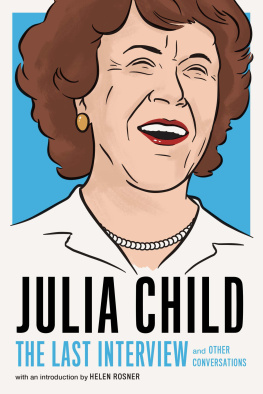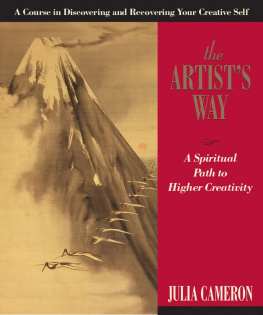Heidi Julavits
The Vanishers
A talent is not a weapon in every culture.
ADAM PHILLIPS
The story Im about to tell could be judged preposterous. Fine. Judge how you must. Protect yourself by scare-quoting me as the so-called psychic, the so-called victim of a psychic attack. Quarantine this account however you must so that you can safely hear it. What happened to me could never happen to you.
Tell yourself that. Even though what happened to me happens to people like you all the time.
In the beginning, an attack can look just like regular life. You wake to discover eyelashes on your pillow, bruises on your skin where youve never been touched. You smell a stranger on your bedsheets and that stranger is you.
As the weeks pass, you notice other humiliations. An unceasing bout of acid reflux and an irritable bowel. Gums that bleed when you sip hot tea. Fingernails that snap when you push your hands through the sleeves of a sweater. The ghostly withdrawal of pigmentation from your cheeks. A rash on your torso. A rash on your hands. A rash on your scalp.
And so it goes, your bodys hurtle along a failure trajectory that no doctor can explain. There is only the numb leg, the searing esophagus, the face its frostbit complexion, its vinegar stare you no longer recognize as your own.
Im overworked and need to take more vitamins, youll tell yourself. Maybe Im allergic to wheat or my new car. Maybe Im depressed, or not enough in love anymore with my life, my spouse, my self. Youll schedule beach vacations or more time at the gym, but no matter how many times you dunk yourself in oceans or flush the liquid content of your body through your pores, you cant escape the suspicion that a cancer drifts through your anatomy, that it will soon metastasize to your personality, that it is only a matter of time before it breaches the cellular firewall encircling your soul.
When this happened to me, I did what people do: I saw my doctor. She sent me to another doctor. And he to another. I saw so many, many doctors. I was pricked and I was bled, I was leashed to computers, scanners, drips, I was MRI-ed, EEG-ed, and CT-scanned, my body subjected to a battery of lie detector tests that, because the claims it spouted were deemed inconclusive, it apparently did not pass. I acquired a medical file so thick it practically required its own gurney to be moved. I was greeted by each new specialist with a weary smile. I was patronizingly quoted Donne. (There is no health. We, at best, enjoy but a neutrality.) Because the doctors could not cure me, they decided I could not be sick.
They told me it was all in my head. Namely, I was to blame. I was the sickness.
Which I dont deny. I brought this on myself. I failed to take the proper cares and cautions, I failed to live invisibly or wisely. Besides, dont the healthy always suspect the afflicted? She drove herself to exhaustion. She was so stressed out. She never dealt properly with the death of her mother.
All of this is true. However. I cannot take all the credit. I say this humbly, not reproachfully. Someone else made me sick.
Let me explain this in terms you can understand. People make people sick, it is not a stretch to claim this. What remains up for debate is the degree of malice involved when a person makes another person sick. Did your sister, for example, intend to give you her head cold? In most cases, not. We do not blame head colds on other peoples heads, we blame them on their bodies.
But what if your sister or girlfriend or roommate or coworker intended to give you a cold? What if, while you were in the bathroom, he or she coughed on purpose into your water glass?
And what if were not referring to people as carriers of disease but people as diseases? The self is a source of contagion, oftentimes an unwitting one. He makes me sick, youve said of your ex-boyfriend. Shes toxic, youve said of your boss.
And maybe he did, maybe she is. After you become afflicted, after the doctors finger you as the cause, its instinctual to blame others for your physical misfortune. But blame is lonely, and your loneliness is compounded by the fact that youre scared to go outside. To be near others is to risk further exposure and, worse, humiliation. Even your best friend cant help staring at the sores on your mouth.
In retaliation, to preserve whatever small amount of pride you still possess, you become the secret curator of the suffering of others. Homebound now, you do online searches for people from your past. Youre pleased to discover that your college roommates looks have been lost, that a former coworkers start-up went bankrupt, that an ex-girlfriends Broadway dreams did not pan out. You spend your days monitoring demises. You become, over time, the connoisseur of downfall, a covert expertise that distracts you from your own decline.
You might realize, as I realized, that there exists one individual whose downfall over which you fixate, even obsess. For me that individual was a woman named Dominique Varga. She was a mother to me when no one else wanted the job. My own mother killed herself a long time ago. But your obsession might be a basketball coach, a softball coach, a graduate TA, a personal accountant, or a special, unlucky stranger you choose at random, as though from a police lineup, and falsely accuse. Why be fair? Nobodys been fair to you. Monitoring this persons disappointments functions as a course of steroids might, each new failure for her registering as an improvement for you. Her marriage implodes, your rash subsides. The economics of revenge. Your stock rises as hers declines. Perhaps you befriend her, and send the occasional e-mail. Otherwise you watch and harmlessly wait for your fortunes to reverse.
But what if you are not the only victim here? What if your daily online visits to this person whose ruin youve charted are not so benign? What if you are not a spectator to her demise? What if youre to blame for her shitty life?
What if you are her disease?
In other words, this is not just a story about how you can become sick by knowing other people. This is a story about how other people can become sick by knowing you.

The attack, we later agreed, occurred at Madame Ackermanns forty-third birthday party.
The evening was typical for late October icebox air, onyx sky, White Mountains humped darkly in the distance, and peripherally visible as a more opaque variety of night. Because I knew that Madame Ackermanns A-frame would be underheated, I wore a wool jumper and wool tights and a pair of silver riding boots purchased from the Nepalese import store, run by an aging WASP hippie. Hers was one of seven businesses in the town of East Warwick, New Hampshire (there was also a vegan pizza parlor, a hardware store, a purveyor of Fair Isle knitwear, a bank, a pub, and a real estate agent), a town that existed in the minds of some to provide basic material support to the faculty and students at the Institute of Integrated Parapsychology referred to locally, and by those in the field, as the Workshop.
That I Julia Severn, a second-year initiate and Madame Ackermanns stenographer had been invited to her forty-third birthday party was an anomaly that I failed to probe. When I let slip to my stenographic predecessor, Miranda, that I had been asked to Madame Ackermanns for a social occasion, Miranda tried to hide her wounded incredulity by playing with the pearl choker she habitually wore and, in apprehensive moments such as these, rolled into her mouth, allowing the pearls to yank on the corners of her lips like a horses bit.














